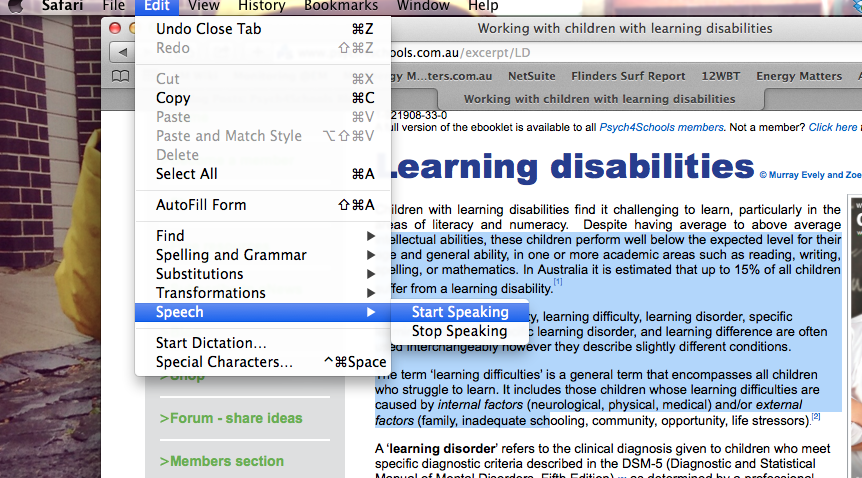Category: Trauma
By Psychologist Alison Soutter, Psych4Schools Guest Blogger A trauma is a psychologically distressing event that overwhelms a person’s coping ability and convinces them they are about to experience serious injury or death. It can undermine a person’s trust in the world and have ongoing effects. In most classrooms there are children who are suffering from
Read moreHow to help a student with no friends
Teachers and other school professionals are frequently called on to assist students who have difficulties making and keeping friends. This is particularly true at the beginning of a new school year. Friendship issues are a normal part of school life, and in most circumstances will be resolved in time with little or no adult intervention.
Read moreThe most effective way to discourage bullying
By Dr Ash Nayate, Clinical Neuropsychologist Psych4Schools Guest Blogger Bullying is a widespread concern for kids and teens, and despite our best efforts, as educators we can often feel like we’re one step behind. Most schools do an outstanding job of establishing anti-bullying policies, investing in student wellbeing, and teaching kids the strategies to
Read moreExams to mark? Reports to finalise? Students tired and irritable? Social events and school functions to attend? The end of the year in schools is often a busy and trying time for both staff and students. The last thing you probably feel like doing is thinking about next year. Making some time in the next few weeks,
Read moreI read with interest an article in The Age (Sunday 4/10/2104) by American Paediatrician Jane Scott, titled Parents, down phone and listen, which highlighted issues associated with parents who use social media, whilst caring for children. Scott notes that when carers constantly use social media in the presence of their children there are frequent breaks
Read moreSpeech-to-text and text-to-speech software: Helping students with learning disabilities
I was talking with a teacher recently about the power of text-to-speech software, and the big changes she’s seen not only in the output of work of one of her Year 6 students, but also his improved attitude to writing. Using the software on his laptop he is now able to write two or more
Read moreLearning difficulties the questions teachers ask
Yesterday 160 teachers, psychologists and other school professionals in NSW gave up their afternoon to attend our Five common learning difficulties: Key teaching strategies presentation. The two hour presentation, hosted by Braddock Public School, was jam-packed with the six key teaching strategies for learning difficulties, followed by specific recommendations for the learning disabilities associated with
Read moreApps for learning difficulties
I recently attended a professional learning seminar with Learning Difficulties Australia (LDA) that focused on apps for students with learning difficulties. During the presentation a teacher helped set the speech function on my iphone. The directions were simple, ‘Go to settings, general, accessibility, speech selection ‘on’, highlight words.’ Now using the microphone next to the
Read moreStudent with a slow work pace? Poor processing speed?
Processing speed relates to an individual’s ability to perform simple repetitive cognitive tasks quickly and automatically.[1] Schneider, W. J., & McGrew, K. (2012). The Cattell-Horn-Carroll model of intelligence. In, D. Flanagan & P. Harrison (Eds.), Contemporary … Continue reading. Issues with processing speed only become evident once a person knows how to do a task, rather than in the
Read moreStudents with Severe Language Disorder
Children with a language difficulty have trouble understanding, using and processing language. Approximately 6 per cent of school-aged children have significant speech and language problems.[1] Speech Pathology Australia 2003 sourced from http://www.speechpathologyaustralia.org.au/ In some parts of Australia, the number is as high as 13 per cent. [ref] McLeod, S., & McKinnon, D. (2007). Prevalence of communication disorders compared
Read moreHave you heard of dyscalculia?
Children with dyscalculia (mathematics disability) have a poor sense of number. They experience significant difficulties grasping and understanding the size or quantity of a number and the relationship of numbers to one another. Approximately 3 to 6 per cent of children suffer from dyscalculia. Despite its prominence, most teachers, psychologists, and many researchers know very
Read moreAre you preparing for the school year ahead?
Yes, you are busy but a little bit of time and effort preparing for the year ahead can reduce a lot of hassles and stress in the new year. Spend some time in your end of year staff, or department meeting discussing, in small groups, the main student and parent issues that occurred this year
Read moreFinish the year on a calm note
The last few weeks of the school year can be stressful juggling last minute tasks while finalising student assessments, reports, and attending end of year events and functions. Below are a few ideas to help you keep calm when managing challenges that can arise at school. Know how to calm yourself quickly Remaining calm is one
Read moreBetter sleep = better learning
Do you have students who seem to forget everything they learned the day before? There are a variety of reasons why students do not retain learning. One that is often overlooked is lack of regular, good quality sleep. Poor sleep patterns impact both on learning and wellbeing. Recent research shows that 65% of Grade 4 students are regularly
Read more‘What I do I can say What I say can be written down What is written down can be read.’A simple saying, that highlights an often neglected aspect of the curriculum, from early years to senior years–the development of oral language competence. Learning to read is fundamentally a linguistic task, drawing heavily on a child’s
Read moreWhy is this student underachieving?* Or overachieving?
I’ll let you in on a little secret… IQ is not, I repeat NOT the best predictor of student success. If you work in a school you probably already know this but many students, parents, governments and other members of the community do not and it’s time to share this with them. Last week I
Read more














